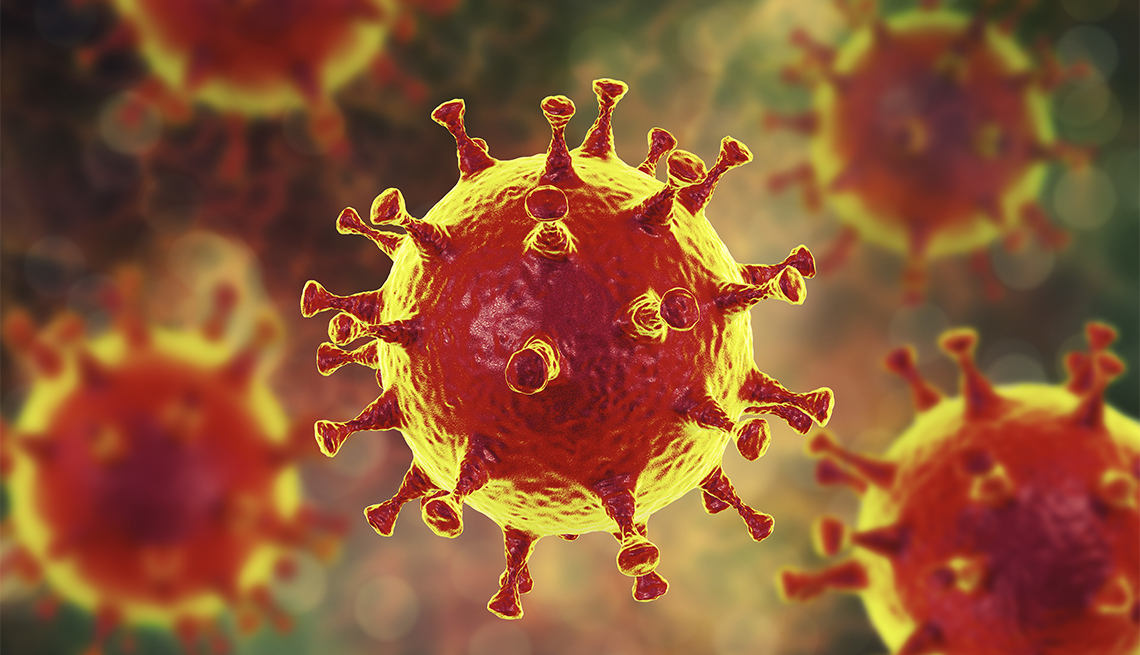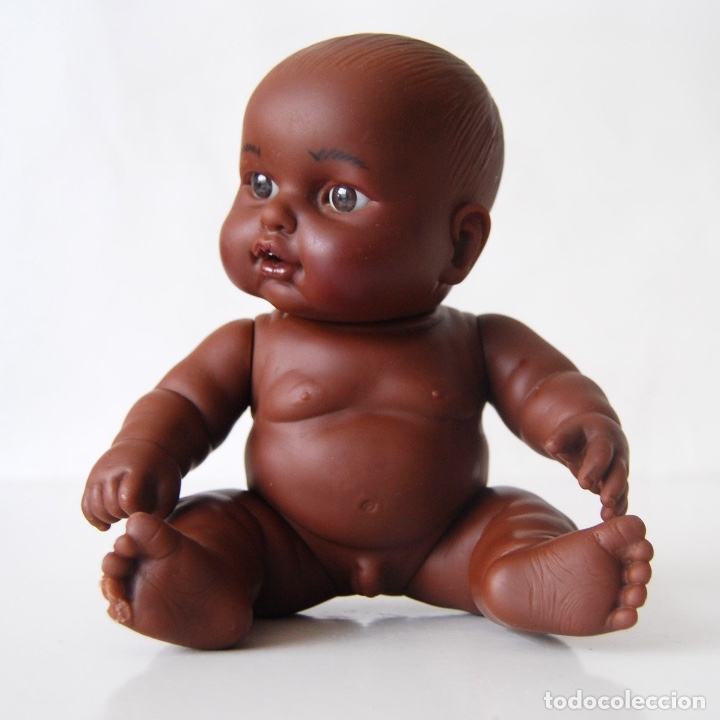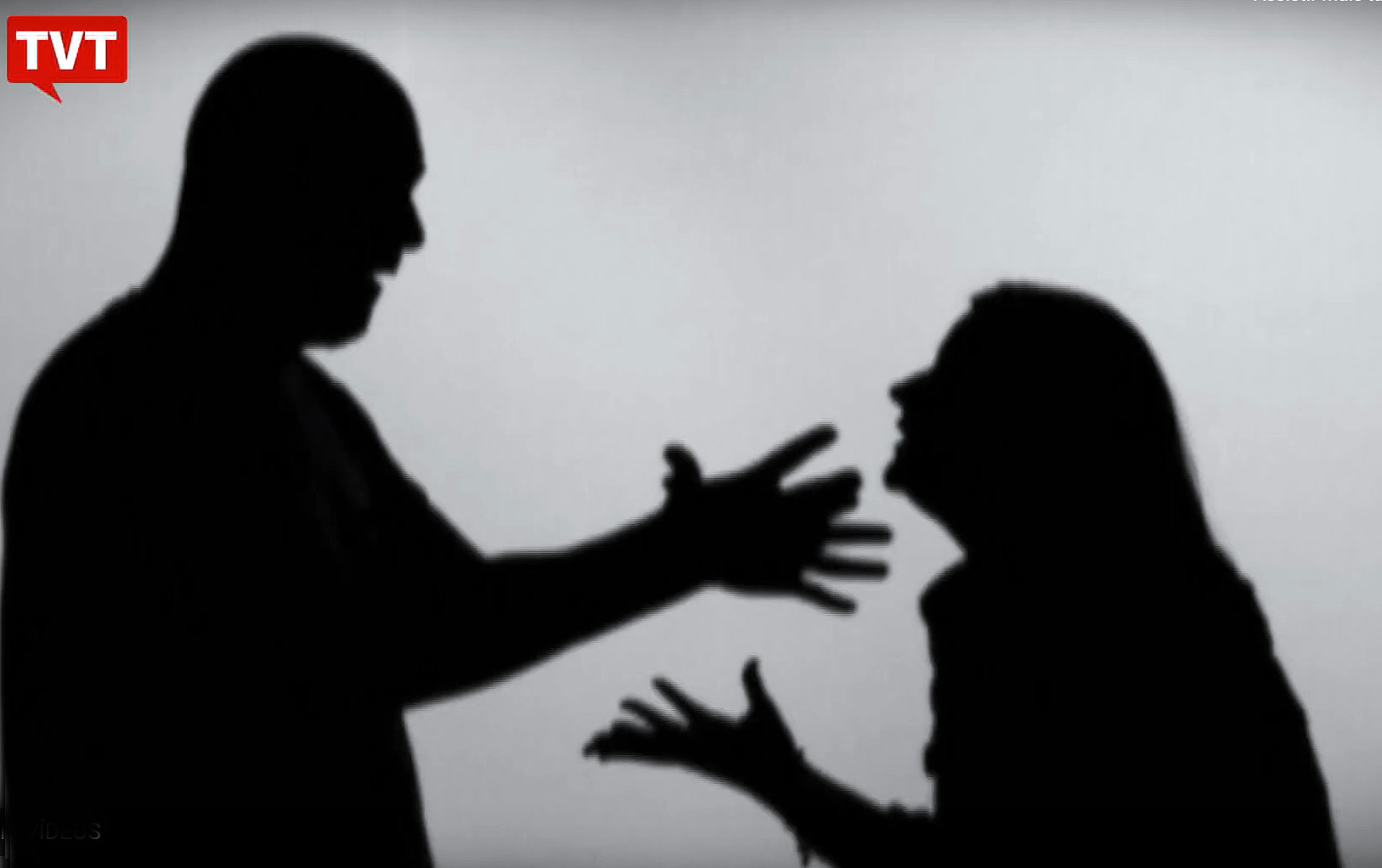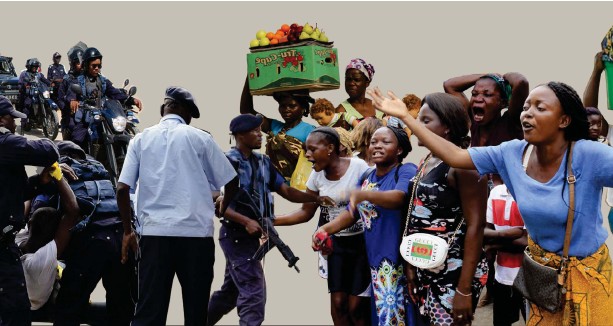First of all, the coronavirus COVID-19 pandemic is the defining global health crisis of our time and the greatest challenge we have ever faced since World War Two. Since its emergence in Asia in 2019, the virus has spread to every continent except Antarctica. Cases are rising daily, countries are racing to slow the spread of the virus by testing and treating patients, carrying out contact tracing, limiting travel, quarantining citizens, and cancelling large gatherings such as sporting events, concerts, schools and churches etc.
It is important to remember that, the novel coronavirus is a fatal disease caused by the novel coronavirus first identified in Wuhan, China, has been named coronavirus disease 2019 (COVID-19). Formerly, this disease was referred to as ‘2019 novel Coronavirus.
The most common symptoms are shortness of breath, cough and fever. In more severe cases, infection can cause pneumonia or breathing difficulties. The virus is also known as an invisible enemy as nobody can identify the one who has the virus.
There are now more than over 100,000 confirmed cases of coronavirus across Africa, with a number of African countries imposing a range of prevention and containment measures against the spread of the pandemic.
SUGGESTED READING: Africa’s COVID-19 deaths pass 100,000 mark
Major African stats: May 26 2020
Confirmed cases = 116,596
Number of deaths = 3,496
Recoveries = 46,840
Active cases = 66,260
AFRICA IS FRUSTRATING THE WORLD
In April 2020, the World Health Organization (WHO) official said that coronavirus cases in Africa could surge from just thousands now to 10 million within three to six months, according to provisional modelling.
The study finds that between 29 million and 44 million people in the WHO African region could get infected in the first year of the pandemic. Between 83,000 and 190,000 could die in the same period, it warns.
The estimates are based on prediction modelling, and focus on 47 countries in the WHO African region with a combined population of one billion - Egypt, Libya, Tunisia, Morocco, Eritrea, Sudan, Somalia and Djibouti are not included.
However, Coronavirus appears to be taking a "different pathway" in Africa compared with the rest of the world, the World Health Organization. The number of infections surpassed 100,000 on Friday 22, 2020 with the continent not experiencing the very high numbers devastating many countries despite its fragile health systems.
World Health Organization (WHO) does not want to recognize the cure for coronavirus as it has an African origin. However, Africa is frustrating the world, intriguing the medical community and going against WHO's predictions.
WHO predicted that most Africans would be infected with the COVID-19 in just one week because of poor hospital quality and poor hygiene. Furthermore, Asia and Europe hoped that as soon as the first cases of coronavirus appeared in Africa, it would be a catastrophe. However, the situation is so controlled in African countries, that the international media prefers to present cases of infection of coronavirus not by each country but by the African continent itself.
To make matters worse, they were more humiliated because they knew that the number of people recovered was greater than those infected in 24 hours. The WHO Dr Jakab almost died of panic rather than COVID19, when she received the information that Africans already have the cure for covid-19.
In the face of catastrophic coronavirus death toll predictions, African governments are looking at a number of strategies to mitigate the risk and combat the unique challenges facing the continent.
The problem with predicting coronavirus apocalypse in Africa
Claims that Africa will be hit the worst by the pandemic ignore African epidemiological know-how and action.
There exists a considerable difference between an informed fear and an uninformed assumption. Much of the conversation surrounding the potential impact of COVID-19 on Africa so far seems to have stemmed from the latter.
Africa is the youngest continent demographically with more than 60% of the population under the age of 25. Older adults have a significantly increased risk of developing a severe illness. More than 3,100 people have died from coronavirus across the continent of 1.3 billion people, while 41,473 people have recovered since the virus was first detected on the continent. The global health body highlighted that African governments swiftly imposed restrictive measures on their populations in attempt to curb the spread of the virus.
Despite "significant progress in testing", rates of testing in Africa remain low in comparison to other countries. But while the number of cases remains low, the pandemic "remains a major threat to the continent's health systems".
Covid-19 disaster victimizes poor and vulnerable people
Even though all countries – rich and poor – are struggling to cope with the immediate threats of the pandemic, it is more than clear that covid-19 will hit the poor hardest.
The measures taken to contain COVID-19 is affecting households in many ways, including job loss, loss of remittances, higher prices, rationing of food and other basic goods, and disruptions to health care services and education.
A large share of the new poor will be concentrated in countries that are already struggling with high poverty rates, but middle-income countries will also be significantly affected. Almost half of the projected new poor (23 million) will be in Sub-Saharan Africa.
"Children are likely to be the most serious victims, in the near term as well as the medium and longer run, in poorer countries, but perhaps also the poorest children in richer ones." - Sir Richard Jolly
Children in poor countries are suffering above all from the economic effects of the pandemic, in particular from the consequences of the huge recession in developed countries following their ‘lockdown’ measures, worsening their markets, and reducing employment, household earnings, and government revenue in poor countries.
Furthermore, children will also suffer if parents or grandparents become sick and are unable to care for them. In developing countries, these impacts may be larger if parents, adult relatives or neighbours are sick or cannot work or earn the incomes needed to provide food or other necessities, or if they die.
The experience of affected countries suggests that the incidence and impacts of covid-19 can vary significantly across space and over time, with urban areas being the hardest hit initially. The world has never faced a hunger emergency like this, experts say. It could double the number of people facing acute hunger to 265 million by the end of 2020.
The suffering in the African communities have at epicenter of the coronavirus pandemic. Many people have unnecessarily lost their lives. thousands people already go to bed hungry each single day. The pandemic-triggered trade restrictions threaten to deny low-income, import-reliant countries access to food, many in Sub-Saharan Africa.
Case studies of Angola, Botswana and Zimbabwe
Covid - 19 issues in Angola:
- Hunger. There's no food distribution system in the country. People do not receive unemployment benefit. They live by themselves without government support. And most of these people are street vendors and the police is there using force against anyone found in the streets;
- Water scarcity. People are not washing hands;
- Lack of sanitary hygiene products. They are very expensive poor people cannot afford;
- Increased levels of poverty, criminality and unemployment;
Angolans violate covid-19 prevention rules because of hunger.
According to sources from one of Luanda’s cemeteries, before the declaration of the state of emergency, the cemetery was recording only 15 to 25 funerals daily, but now has risen to more than 50 funerals a day. Interestingly, these people are not dying of coronavirus. So far, Angola has recorded only four deaths from covid-19.
What really is the main cause of death of these people?
People are disobeying, because where there is hunger, laws are not respected." It was well predicted that coronavirus would increase hunger, crime and poverty in Africa, long time before this invisible enemy attacked the continent.
The prolongations of the state of emergency in the country have been a great punishment for thousands of Angolans, especially the most vulnerable. This situation leads Citizens to put their health at risk when they go out on the streets to look for daily bread. The crowding of people continues to be visible, whether in leisure areas or in commercial establishments and banks, without maintaining the required social distance. Especially in the peripheral neighborhoods, where people continue to circulate, "moving around in bars and tents work" as if nothing had happened.
It is impossible to comply with the rules of prevention in a country with low and bad quality of life.
Women as the principal victims of covid-19
Women have been the main victims of this misfortune. Many of them are single mothers and street traders. If they do not go out to sell, they will not eat. We have witnessed daily beatings and murders of these ladies constantly by running over on the roads while trying to escape the group of polices. These cops use force against them when they're found selling on the street, as if not enough, they also steal their products. Moreover, at the end of the working day, many women are assaulted by their husbands inside the home. Unfortunately, the covid-19 pandemic also increases the rate of domestic violence that continues to be one of the leading causes of women's death in Africa.
“It is obvious that people are not dying from Covid-19 but rather because of hunger, domestic violence, home burglaries and other street crimes”
A large part of the inhabitants work on their own in informal markets. The Social isolation has decreased a lot, i.e. it has cut off the income of these people. Food, sanitary products and biosecurity materials are extremely expensive. Poor people cannot afford.
Hunger plagues many families, cooking gas prices has increased and it is scarce, education is at risk, drinking water is lacking in peripheral areas for years, resulting in non-compliance with hygiene rules against covid-19. People are not washing their hands constantly. Many just take a shower in the morning and that's enough. We also observed an increase in the number of domestic violence, poverty and crimes of murder and theft. It should be noted that Angola does not have any food distribution system and also does not offer support to the most needy who often die of hunger and life disgust.
The office for Citizenship and Civil Society of the MPLA, is accused of being distributing to several leaders of the party in the power and friends of the office director Anabela dos Santos Dinis, basic baskets of food that were supposed to be destined to the most vulnerable people of Angola.
These corrupt leaders enter with their personal vehicle in the warehouses located near the headquarters of MPLA, where “PONTUAL” (advertising company of these comrades) is located and from there they are supplied with various food and biosafety goods.
Since the emerge of coronavirus pandemic in Angola, the funerals in the cemeteries rose from 10 to 50 burials a day. It is obvious that people are not dying from Covid-19 but rather because of hunger, domestic violence, home burglaries and other street crimes, which has increased significantly during coronavirus pandemic. These and other factors force Angolans to break the rules of prevention and go out into the streets in order to search for daily bread.
A baby dies of hunger in Angola
Due to extreme poverty, the lack of food has been a constant in many families, but this time the situation caused the death of a child under 10 months old.
The scarcity of food was so big that forced the mother to look for it in different places, but when she returned the boy had already died. The mother did not even have money to bury her son. Her neighbors joined in solidarity and bought a coffin, without having a means of transport, the mother carried the urn on her head to the cemetery, where she saw her son for the last time.
However, Angola still shows little respect for the freedom of expression laws. The TV show that reported this sad event was barred until further notice.
-There is a high rise in GBV cases, especially defilement.
-Another issue is the lack of contraceptives. Most young people where both able to stock on condoms and those who use other contraceptives such as the pill could not get permits to visit their doctors, this therefore means there will be high new HIV infections, STIs and unplanned pregnancies. Unplanned pregnancies can lead to back street abortions since abortion is illegal in Botswana.
Problems During & Post Covid-19
- ●Gender based violence due to being home 24/7 with the abuser
- ●Psychological issues (depression & anxiety)
- ● Lack of water causing overcrowding at few water sources in the community
- ● lack of cheap & free contraceptives and sanitary wear
- ● hunger
Solutions
- ●free counselling services and safe houses for victims
- ● drilling of more boreholes for clean, safe and adequate water supply
- ●availability of contraceptives and sanitary wear for free or subsidized prizes
- ● offer food packs
We can propose a project on
1. Raising awareness of vulnerable people facing the Covid-19.
2. Help poor people with the basic foodstuffs.
3. Fund management against the Covid-19 response.
4. Campaign against gender based violence /lack of clean and adequate water sources and provision of contraceptives and sanitary wear
5. Drilling of solar powered boreholes
Another issue in Africa. Women’s complaints.
In many African countries some of the biggest problem involves adolescents and young people (AYP) when dealing with SRHR services. They do not have access to them, because first they have to apply for permits to do anything outside their house, even going to the clinic, and the permits can take a little bit longer, and they end up missing their appointments. This issue is so bad. For example, a girl was complaining about her grandmother that hasn't been feeling well for the past week and the doctors release the permit only after 4pm, and it'll be valid for 4 hours on the same day, and by then the doctors have knocked off and pharmacies are closed.
Another challenging issue is that baby clothing shops are closed and this is affecting new mothers and small children throughout the country. Some toddlers really grow, clothes from last winter do not fit anymore, let alone from last month, and yet the government says we should just have the kids wear clothes from last year or hand me downs that have been donated by the public, when some parents are capable of buying new clothes for their kids. Another thing is that, although the government is giving out food to people, they are only giving to a select few, they judge based on some "appearances" like how sometimes they would skip a yard because it is walled and has an electric fence, and do an assessment in the next yard that's not walled. They are forgetting that right now, no one is allowed to work, which means we all don't have a source of income and we all don't have food and other necessities.
Negative Impacts of COVID-19 Pandemic on Education
Education is one of the sectors heavily affected, with the closure of learning institutions in many African countries likely to negatively affect education in terms of access, quality and investments.
“In light of the current health crisis, today more than ever before, access to quality reading material and learning is key as millions of children throughout Africa can no longer go to school”
One and a half billion children and young people are affected, representing 87 percent of the enrolled population. With few exceptions, schools are now closed countrywide across Africa, Asia, and Latin America, putting additional stress on education systems in developing countries, many of which are struggling to provide quality education for all. Most education systems in low- and middle-income countries were grossly underfinanced even before the coronavirus crisis. Countries that depend heavily on trade, tourism, or commodity exports may be at especially high risk right now, as raising domestic resources will be difficult.
African governments and key education stakeholders have instituted some measures to promote the continuity of education from home. These have been successful in some ways, but challenges remain.
For instance, Angola does not have any distance study system. Moreover, the Internet is very expensive and not all teachers as well as students have digital literacy, no matter how much they try to do video conferencing through the zoom app, it is not working at all. Online class in Angola has been a huge failure.
Private institutions require students to pay tuition fees so that teachers can have salaries. Students refuse to pay tuition because they are sitting at home without having classes and schools are closed.
The jobs of the parents of many of these students have also been affected by Coronavirus, they are all at home without working. Where are they going to get money to pay for their kid’s tuition? Most of them are street traders, they work in the informal market and the police are using forces to chase these sellers off the streets.
However, Angola adopted the system Tele aulas(TV)- Transmission of tele classes with didactic content broadcasted by Tele-Aulas channel, in partnership with the Ministry of Education and the Public Television of Angola. Even though, too many children are left behind, there’s a lack of electricity in many houses, very poor family do not even have a TV at home.
Many African countries launched radio-educational programmes. These daily educational programs are broadcasted in various languages. So students can assist learning from home, with special focus on exam preparation.
Addressing Impacts of COVID-19 Pandemic on Girls’ and Women’s Education
Globally, the world is struggling with the COVID 19 Pandemic. The virus has affected the social, economic, and health status of the populations. The virus led to closure of schools affecting millions girls across education levels.
The closure of schools increased girls vulnerability to various forms of violence and exposure to sexual abuse. At home, girls are over-burdened with house chores and with limited time devoted to learning. In the long run, these issues could result into: dropout rate of girls, teenage pregnancies, early marriages, increased cases of STDs/STIs especially HIV/AIDS.
As the number of people with COVID-19 in Africa continue to rise, and governments impose strict lockdown measures including states of emergencies, it has become increasingly apparent that similar to other parts of the world, women are most likely to bear the brunt end of the virus.
Evidence is mounting that the economic impacts of COVID-19 is hitting women harder. 74% of women in Africa are engaged in the informal economy sector 2, working as street vendors and domestic workers. The informal sector provides livelihood and employment to a majority of the urban poor. Women are also over represented in the service, tourism and hospitality industry, a sector characterized by low-paid and limited job security.
Women also represent much of the subsistence farming sector. The informal cross-border trade (ICBT) is also predominantly women-dominated. These are all areas that have been strongly impacted by the COVID-19 response, such as border and business closures, and travel restrictions. The impacts which are already been felt by most households is likely to be deeper and longer-lasting among the poor especially the urban poor, who are more vulnerable for several reasons. These factors will have long term consequences for women’s economic and social empowerment and could contribute to increase women’s vulnerability.
Gender dimensions of COVID-related school closures
- Girls most vulnerable - higher chances of girls dropping out of school (early marriage or pregnancy). Schools are protective environments
- Limited study time due to the burden of caregiving/domestic responsibilities
- Due to economic hardships, recruitment in child labor and exploitation.
- Vulnerability to physical and sexual abuse/exploitation- Girls are likely to engage in transactional sex in order to cater for theirs & family basic needs
- Mental health - anxiety/confusion on loss of education and uncertainty about the future.
How is this crisis particularly affecting girls, adolescents and young women?
- Burden of caregiving heavier on women and girls - nutrition, global burden of disease and death.
- Gender Based Violence - Confinement and lack of basic needs increases tensions
- Limited/ No access to basic health services - SRHR services, maternity, contraceptives, safe abortion, counselling
- Women comprise majority of small traders highly impacted by the lockdown
- Policy influencing - cancellations of key international gender forums e.g CSW New York, which aimed at discussing the Beijing +25 progress
FINAL THOUGHTS
The coronavirus, which causes the disease known as Covid-19, has killed thousands of people across the world and upended the lives and work of billions of others still lucky to count themselves alive. Never before in the past century has a disease wrought so much human havoc and suffering and precipitated an unprecedented global health pandemic of unimaginable proportions.
Governments across the globe have responded by imposing emergency rule and nationwide ‘lockdowns’, which force people to stay in their homes in a bid to slow down the spread of the virus. Millions of people, especially those in the poor developing nations, have found themselves not only facing the threat of this killer virus but severe shortages of food and other life-saving essentials.
Doctors and other health workers in the most countries affected have had to contend with trying to save the lives of an unending stream of critically ill people without adequate medical ventilators that are meant to help the sick to breathe easier nor an antidote for this novel virus.
The lack of medical protective equipment for the health workers is endangering their lives, as well as the lives of their family members and of all those they are in contact with because the novel coronavirus is highly contagious. Indeed, dozens of doctors and other medical personnel have already died in this pandemic, which is reported to have started in China in December 2019 and has fanned like wildfire to more than 200 countries within three short months.



























